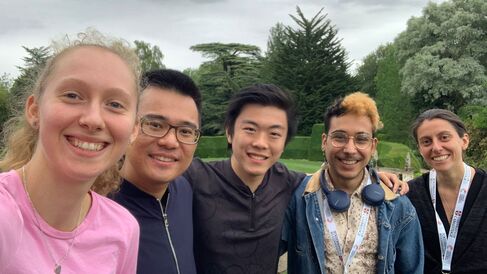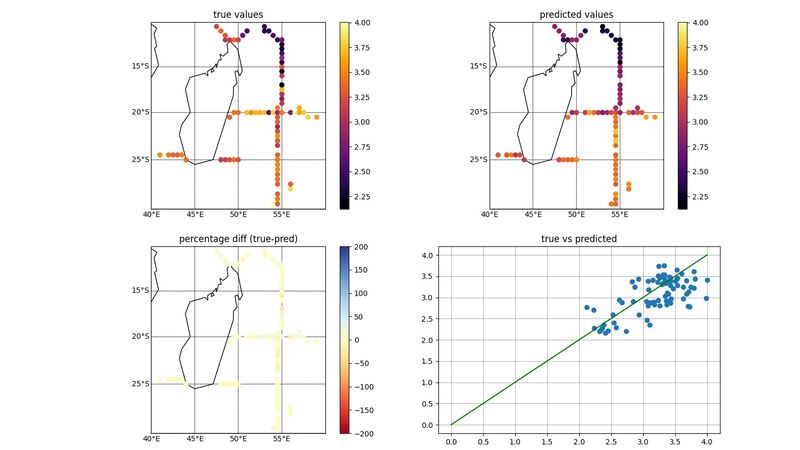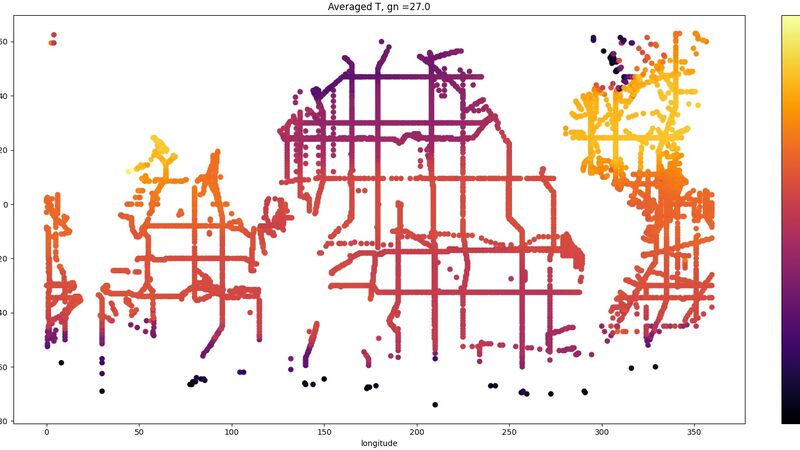
Myles Ng worked on the mapping of oceanic heat and carbon uptake using machine learning under the supervision of Dr Laura Cimoli of ICCS. The following blog outlines his experiences contributing to the world leading research.
Going into the project, there were two main things I had hoped to take away from it. I was excited to apply what I had learnt so far, as a maths undergrad at Cambridge, to areas related to climate change, a pressing issue which we all face. I also valued the chance to gain insight into what professional research looked like, which could help inform my future career choices. It’s safe to say I managed to do both these things in abundance.

Example of applying test data to a trained model.
Throughout the eight weeks of the project, I applied machine learning methods to predict concentrations of transient tracers such as CFCs at different points in the ocean, with the ultimate goal of producing a gridded product of these concentrations to a half degree, annual resolution. This would help us better understand how waters in the ocean circulate and interact with one another, and in turn informing how the ocean takes up and stores anthropogenic carbon and heat which affect the rate of climate change. Using data from Laura's previous work, I trained and tested regression tree models to provide a baseline comparison with other algorithms. Most of the work involved engineering the input features, tweaking the parameters of the training process, and visualising the results in clean and easy-to-read figures.

Hidden world map in the white space surrounding points that display steady state water temperatures.
Working in ICCS was relaxed yet productive. I met with Laura twice or three times a week, to discuss progress and next steps. The rest of the time I spent working either at home, or at the CMS alongside other summer interns working on various projects. Of course, the project was not without setbacks, but learning to troubleshoot technical issues and human error was part of the process, and Laura was most patient in helping me identify problems and guide me towards possible solutions.
It was great to get to know other ICCS members at a number of socials and casual lunches, learning about what they were working on and their various backgrounds. I also had the opportunity to attend parts of the ICCS summer school, meeting climate science researchers from institutions around the world over a series of computing workshops and dinners.
Overall, I thoroughly enjoyed my time at ICCS. It was an insightful and fruitful way to spend my summer, and I could not recommend future projects more to anyone considering a career in academia or research. I’d like to thank ICCS for giving me this wonderful opportunity, and especially Laura for giving me direction and guiding me through the project.
